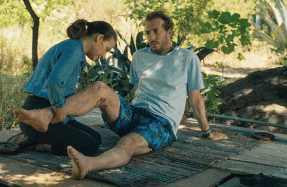
Since at least Charlie Chaplin’s The Immigrant (1917), immigration has been one of American cinema’s great themes. The stories of the newly arrived have been related by a multitude of filmmakers, many of them émigrés themselves or the descendants of émigrés; Elia Kazan’s America America (1963), Francis Ford Coppola’s The Godfather Part II (1974), Joan Micklin Silver’s Hester Street (1975), Barry Levinson’s Avalon (1990), Martin Scorsese’s Gangs of New York (2002), Ramin Bahrani’s Man Push Cart (2005), and James Gray’s The Immigrant (2013) come readily to mind, but the list could stretch to hundreds. Yet for all the diversity of the protagonists’ origins in such films, there has long been a certain homogeneity to American immigration cinema. One principal reason for this is milieu: most films about immigration are set in cities, with New York, for obvious reasons, taking pride of place.
What this means is that the experience of rural-living immigrants in America remains relatively unmined by filmmakers. Leaving aside Michael Cimino’s (1980), due to its notably ahistorical representation of Eastern Europeans, the most notable counterexamples would be Werner Herzog’s (1977), Lars von Trier’s (2000), Lee Isaac Chung’s recent Oscar winner (2020), and another Oscar nominee that marks its 50th anniversary this year: Jan Troell’s , which beat Ingmar Bergman’s (1972) to the punch by a year to become the first Swedish film (and only the third international movie ever) to be nominated for Best Picture, rather than Best Foreign Language Film. Chronicling the odyssey of farmers Karl-Oskar and Kristina Nilsson (Max von Sydow and Liv Ullmann) and their family and its sequel (rather second half), (1972)—available in digital restorations on a two-disc Criterion Blu-ray set released in 2016—constitute one of the screen’s most monumental portraits of the immigrant experience: artful yet seemingly artless, intimate but epic.




